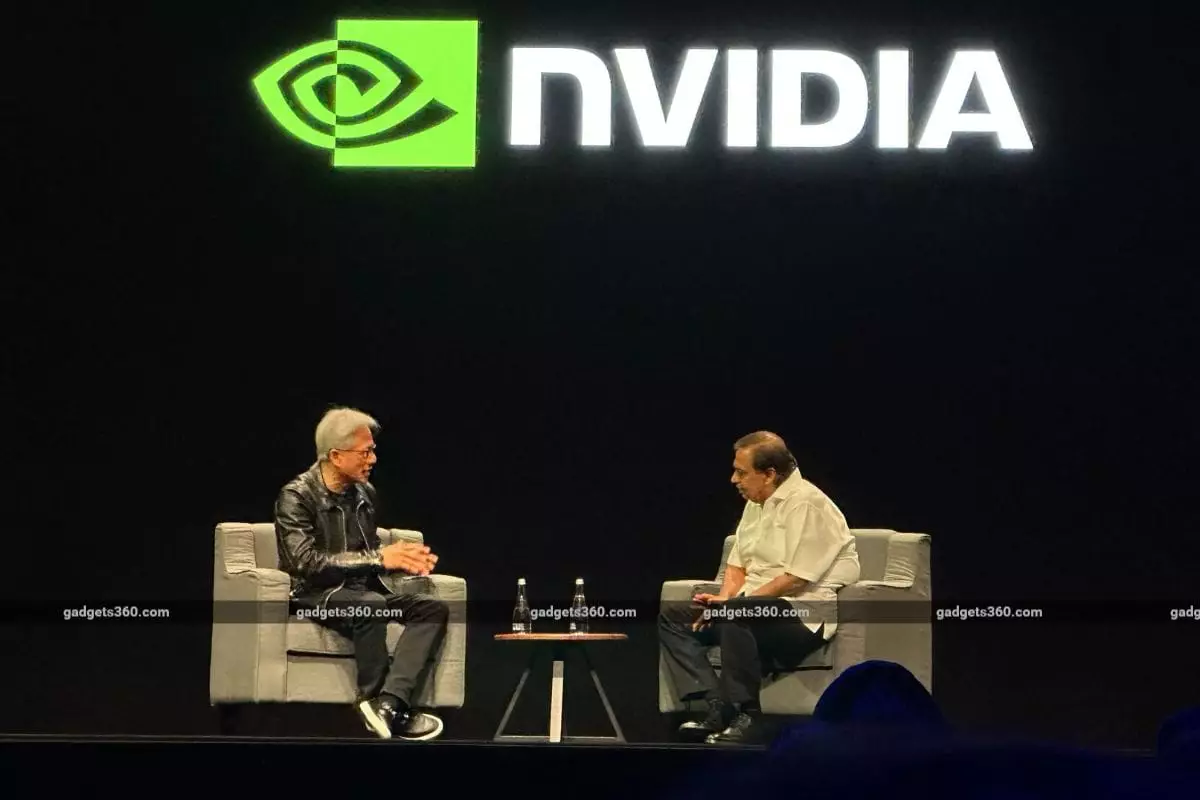In the rapidly evolving landscape of technology, the necessity for global collaboration appears to be crucial, regardless of fluctuating political climates. Jensen Huang, the CEO of Nvidia, recently underscored this sentiment during a visit to Hong Kong. His remarks came amid a backdrop of increasing export controls enacted by the U.S. government on technology, particularly concerning sensitive markets like China. The discussion navigated through the implications of these restrictions, while emphasizing the long-standing tradition of open science and cooperative efforts in mathematics and science as cornerstones of progress.
Huang articulated a vision that transcends geopolitical constraints, asserting that compliance with legal frameworks should go hand-in-hand with the continuous evolution of technology to meet global demands. This perspective invites stakeholders to reflect on the dynamics of international relations in tech, especially in an age where reliance on advanced computing technology is paramount. Huang’s message is a beacon of hope, suggesting that the collaborative spirit among nations engaged in tech development remains resilient, even in challenging times.
The Dawn of a New Technological Era
The celebratory atmosphere at the Hong Kong University of Science and Technology, where Huang received an honorary doctorate, provided a unique backdrop for his insights. In addressing graduates, he proclaimed that we have entered “the age of AI,” an assertion supported by the ubiquity of artificial intelligence applications across various industries. The gravity of this shift is monumental, marking a new computational era that promises to influence an array of scientific undertakings.
Furthermore, Huang reflected on Nvidia’s transformative role in this technological revolution since the invention of the graphics processing unit (GPU) a quarter-century ago. He described AI as perhaps the most significant technological advancement in history, a force capable of reengineering industries and reshaping experiences. The perspective encourages the new generation of innovators to harness the tools at their disposal for scientific pursuits, highlighting the unprecedented opportunities available in this redefined industrial landscape.
Inspiration for Future Innovators
Huang’s address to the graduates also carried an innate motivational undertone, with his wish that he could commence his career during this revolutionary era. Here lies a significant takeaway for young professionals and aspiring technologists: the current moment is ripe for innovation and advancement. Huang’s assertion that the world is essentially reset underscores the idea that previous limitations are vanishing, allowing for grand challenges to be tackled with newfound vigor.
The convergence of AI technology and a global network of collaborative frameworks could redefine our approach to problem-solving in areas previously deemed insurmountable. Huang’s words resonate deeply, suggesting that the emergence of new technologies will empower individuals and institutions, providing the necessary instruments to disrupt traditional paradigms of thought and practice.
As we navigate this redefining moment in technological history, it is imperative to foster an environment of cooperation across borders that celebrates the power of science and innovation. The future undoubtedly relies on our collective capacity to innovate, challenge norms, and address tomorrow’s challenges head-on.


Leave a Reply